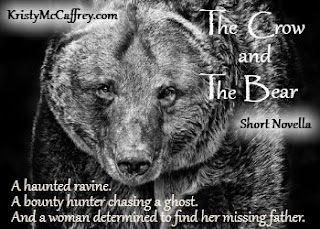By Kristy McCaffrey
Halloween is near, but it wasn’t always a one-day celebration. It evolved from a triduum called Hallowtide (derived from halig, meaning saint, and tide, meaning season). While many cultures celebrate the dead from October 31 to November 2, the most notable contributions to our westernized celebration of Halloween come from the Roman Catholics, the Mexicans, and the Celts.
In Catholic theology, November 1 is All Saints’ Day and commemorates those who have reached perfect salvation. The following day, November 2, is All Souls’ Day, devoted to those who have not reached a beatific vision. It stands as a day of prayer for the dead, and lighting a fire or lantern was often done to provide guidance to the souls of the dead. Public worship, or liturgy, would begin on the eve of All Saints’ Day, thus making Halloween All Saints’ Eve or Hallows Eve.
In Mexican culture, celebrations of the dead can be traced back thousands of years. Giant skulls, sugar skulls, shrines, decorated rabbits, poems and dancing with colorful costumes and devil masks in the town center are all part of Day of the Dead (October 31 – November 2) celebrations, and are thought to bring good luck and peace. It encompasses All Hallows’ Eve, when spirits of dead children are welcomed with the presence of a children’s altar; All Saints’ Day, when adult spirits are invited; and All Souls’ Day, when families visit cemeteries.
In ancient Gaelic culture, the end of harvest season was celebrated with the festival of Samhain, beginning at sunset on October 31 and lasting until sunset on November 1. This is a liminal period for the spirits, or aos sí, to enter our world. Lighting bonfires served as protection from the spirits and costumes were thought to help in appeasing them. Divination and feasting rituals were also practiced.
Looking for a spooky and romantic read this October? Check out these two historical western romance novellas with paranormal twists.
THE CROW AND THE COYOTE
In Arizona Territory, Hannah Dobbin travels through Cañon de Chelly, home to the Navajo, in search of a sorcerer who murdered her pa. Only when she retrieves the silver cross taken from her father's corpse will she be able to free her pa's spirit, and allow him to be at peace.
Bounty hunter Jack Boggs—known as Crow—is on the trail of a vile Mexican bandito when he discovers Hannah and her companion, a superstitious old Navajo woman. He knows he must protect them, but with the shadows of Hallowtide descending, more dark magic is at hand than any of them know.
Available at Amazon and in Kindle Unlimited
THE CROW AND THE BEAR
Bounty hunter Callum Boggs—sometimes called Crow—arrives in the mining town of Silverton on a cold October day in search of a man who has committed unspeakable crimes. Skilled in the technique of dream scouting, Crow has narrowed the location of the criminal to Silas Ravine. No normal man would dare to venture into this region, where so many gruesome and unexplained murders have taken place—a piece of land forever haunted where Death still walks. But Crow is no normal man...
Jennie Livingstone knows her papa is in trouble. When none of the local men will come to her aid, she must accept a newly-arrived stranger—a half-Comanche bounty hunter—as her only ally. As they head into the mountains to track Jennie’s father, she can hear more than the whispers of man. The mines carry spirits, and her only hope in navigating the living and the dead lies with the Crow.
But is Jennie prepared for the consequences of where her fate with Callum Boggs may lead? And is she the woman who can hold fast to the Crow’s heart after all his years alone? Bewitched by the beautiful young woman, Callum must do everything he can to stay one step ahead of the spirits that can’t rest—just to keep Jennie and himself alive.
Available at Amazon and in Kindle Unlimited






